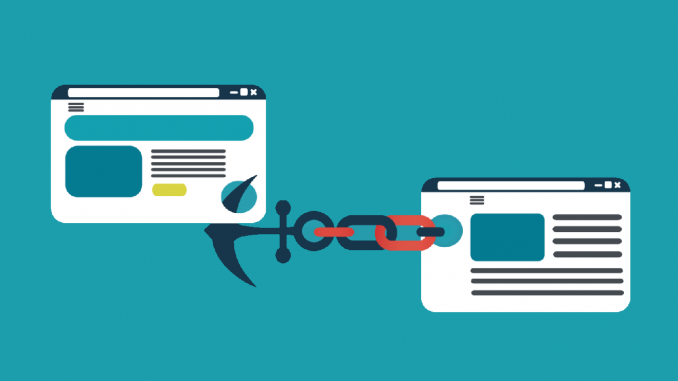
Link equity is the fuel for your website’s search engine optimization (SEO) strategy. Links, of course, influence the algorithms that search engines use to rank websites. The amount of influence a link has is reflected upon its equity.
Most links have equity, which they pass to their destination. If your website earns a new link, it will receive link equity from the source. If your website links out to another site, conversely, it will lose some of its link equity by passing it to the destination. While your website needs link equity to succeed, you shouldn’t resort to link hoarding.
What Is Link Hoarding?
Also known as PageRank hoarding, link hoarding is the practice of manipulating a website’s link equity. Most webmasters acknowledge the importance of link equity. Rather than allowing it to flow into and out of their websites naturally, though, some of them artificially increase it.
Link hoarding encompasses techniques that are designed to artificially increase a website’s link equity. Webmasters who engage in link hoarding will attempt to maximize the amount of link equity flowing into their website and minimize the amount of link equity flowing out of their website. It typically falls under the category of gray-hat SEO. Search engines don’t explicitly prohibit link hoarding, but doing it may result in a negative outcome, nonetheless.
How Link Hoarding Works
There are different techniques for link hoarding, the most common of which is only creating inbound links and not outbound links. Links pointing to your website from other sites are inbound. Links pointing from your website to other sites are outbound.
Websites only receive link equity from inbound links. Outbound links will actually cause websites to lose link equity. Therefore, link hoarding often involves the sole creation of inbound links. With a lot of inbound links and no outbound links, link equity will flow into the website where it stays trapped.
Link hoarding can also be performed using the nofollow attribute. This Hypertext Markup Language (HTML) snippet tells search engines not to assign equity to a given link. When they discover a link containing the nofollow attribute, they generally won’t factor it into their ranking algorithms.
To manipulate their website’s link equity, some webmasters use the nofollow attribute on all of their outbound links. Nofollow links don’t influence the ranking algorithms of search engines because they don’t have equity. As a result, they can’t pass equity to the destination.
Why Link Hoarding Is a Bad Idea
While link hoarding may increase your website’s total link equity, it’s a bad idea for several reasons. Failure to create outbound links, for instance, will turn your website into a dead end. Visitors will be able to enter your website by following inbound links, but they won’t be able to leave it. Without any outbound links, they’ll be stuck on your website, which may cause them to have to negative experience.
Outbound links promote a more positive experience. With over 1 billion websites and counting, the internet is the world’s largest and most comprehensive source of information. You can’t share this information with your website’s visitors unless you create outbound links.
Websites that engage in link hoarding often rank lower than their counterparts. Assuming they don’t contain the nofollow attribute, outbound links will pass link equity to the destination. Studies show, however, that websites with outbound links are good for SEO. If you don’t create any outbound links, your website’s SEO will likely suffer.
A study conducted by Moz’s Rand Fishkin found that websites with many authoritative outbound links ranked higher than those with few or no outbound links. A separate SEO study conducted by the marketing firm Reboot reinforced the positive connection between outbound links and high rankings.
Depending on the technique, link hoarding may result in an algorithmic penalty. Algorithmic penalties are ranking penalties that are imposed automatically by a search engine’s organic ranking algorithm. They are often triggered in response to aggressive link-building tactics. If you build too many inbound links too quickly, it may raise a red flag with search engines’ algorithms that prompts them to impose a penalty.
How to Increase Your Website’s Link Equity Without Hoarding
There are other, more effective ways to increase your website’s link equity. Instead of resorting to link hoarding, you can launch a blog on your website. A blog will encourage other websites to link to your site. If another website likes one of your posts, it may link to the post. Each of these inbound links will increase your website’s link equity.
Building inbound links manually will lead to higher link equity. The more inbound links you build, the higher your website’s link equity will be. You can build inbound links by targeting directories. You can also build them by writing and distributing newsworthy press releases.
Being more selective with your website’s outbound links can retain its link equity. You don’t have to create dozens of outbound links per page or post. For most types of pages and posts, two to six outbounds links will suffice. Creating fewer but higher quality outbound links will retain your website’s link equity.
Here are some tips for building valuable and high-quality outbound links:
Interlinking can help to increase your website’s link equity. Link equity doesn’t just flow between two separate websites; it can flow between two pages on the same website. Interlinking refers to the creation of links between different pages on your website. It allows link equity to move more fluidly through your website.
Link hoarding is more than just bad etiquette; it’s detrimental to your website’s SEO strategy. Link hoarding is bad for SEO, fosters a negative experience, limits the information value of your website’s content, and it may even cause an algorithmic penalty.

Leave a Reply